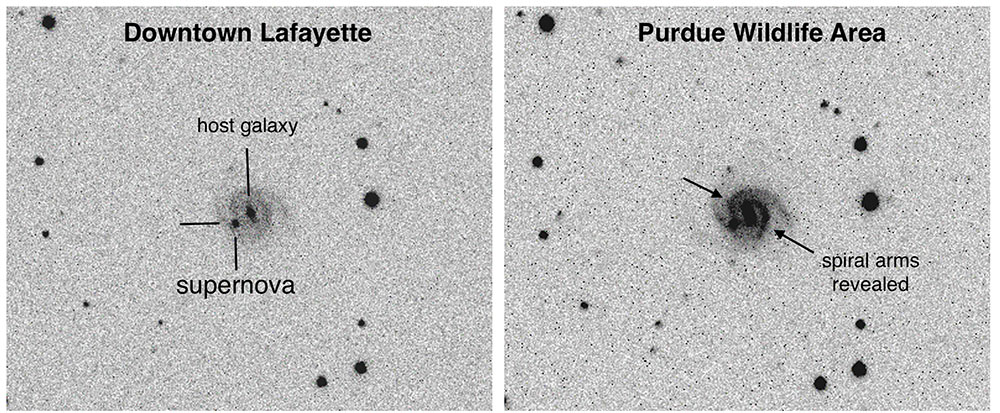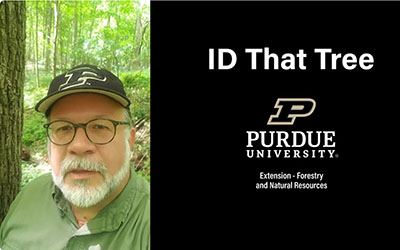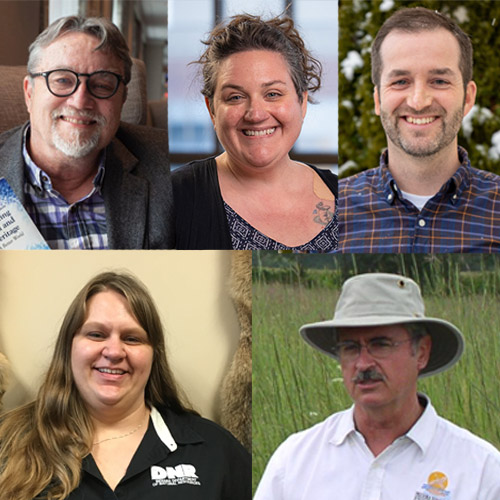Darker Skies Bring Observatory to Purdue Wildlife Area
The Purdue Wildlife Area, a 290-acre property of prairie, wetlands, savannah and woodlands, located 15 minutes west of campus is home to educational, extension and research activities on a variety of natural resource topics. Soon, the area will expand its reach with the building of a small observatory in collaboration with the Department of Physics and Astronomy.
The observatory will house the recently commissioned Astro-Boilermaker Telescope (ABT), which will be operated by Dr. Danny Milisavljevic for a variety of student instruction and research capacities. It will be utilized for classes such as ASTR 567 “Observational Techniques in Astronomy” and ASTR 364 “Intermediate Astronomy II” as well as by graduate students and other researchers. Ph.D. student Bhagya Subrayan will use the ABT for observations supporting her dissertation. The telescope also will collect data, which will support research being performed by students in the Data Mine Learning Community associated with the Recommender Engine for Intelligent Transient Tracking (REFITT), an artificial intelligence engine with the capacity to design optimal observing recommendations in real-time.
“We are thrilled about the Department of Physics and Astronomy locating this new observatory on the PWA managed by FNR,” FNR department head Dr. Bob Wagner said. “We were also excited to learn that in addition to the wonderful wetland, prairie, and woodland resources that are used for Purdue wildlife and aquatic science research, the PWA can also now boast low light pollution levels that make the night sky more visible for Purdue students to better study astronomy.”
The Purdue Wildlife Area was identified as a good location for the ABT due to its reasonably dark skies, close proximity to campus, and proximity to electrical power. The darkness will allow much more sensitivity to faint astronomical objects than the current on-campus location, which is in a light-polluted area. The location at PWA provides 10 times improvement in sensitivity.
“I’m extremely grateful for FNR’s support with this project, which contributes to my vision of providing every Boilermaker an opportunity to be inspired by the thrill of exploring space with a research-grade telescope under dark skies at Purdue,” Milisavljevic said.
The construction of the roll-out observatory at PWA also will eliminate the current need to construct and deconstruct the telescope each night without shelter. The roll-out observatory will protect the telescope as it remains in a stable, optimized configuration and will allow for comfortable operations throughout the evening during all seasons.
The observatory includes a concrete pier from which the telescope and instrumentation will be secured to maintain the stability of the telescope as it tracks stars. A shed, which closes around the telescope when in storage and slides away when the telescope is in use, surrounds the pier. When the shed is slid away, it can also serve as a climate-controlled computer room for the telescope.
Current and future FNR projects at PWA were considered and precautionary measures were taken to ensure all projects can continue unaffected with the installation of the observatory.
The construction of the observatory is set to begin this fall and will be overseen by farm manager Brian Beheler.






